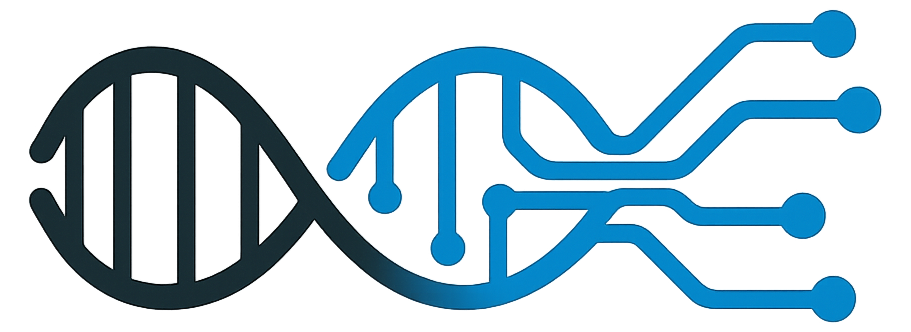🥡Lunch in 2040: Where AI Writes the Code, Teaches Your Kid, and Still Can’t Fold a Fitted Sheet
Imagine It’s 2040.
You're sitting at a table. You and a few friends are passing around lab-grown sushi while an AI assistant hovers nearby, adjusting the lighting based on your microexpressions and suggesting wine pairings based on your last breakup. The conversation is deep. Not because you're philosophizing, but because someone just asked, "Wait, did my AI schedule me for mindfulness therapy again?"
This isn't a scene from Black Mirror. This is the future Sam Altman and Vinod Khosla loosely sketched in their recent sit-down: a weird, beautiful blend of exponential tech, unchanged human emotions, and probably way too many ambient notifications.
Exponential Intelligence Meets Hilariously Stubborn Biology
Here’s the tension they explore: while our tech is doing backflips and solving protein folding in real time, our squishy human selves are still just trying to feel seen.
Even when your AI boss gives you a raise and your AI therapist tells you you’re doing great, nothing hits quite like a real human looking you in the eyes and saying, "You crushed it today."
Altman notes that biology is the real bottleneck. We still crave connection. We still get anxious before presentations. And yes, we still procrastinate by organizing our email folders like it matters.
Corporate Darwinism: The Fortune 500 Will Be Fine (Not Fine)
One bold prediction: by the 2030s, the Fortune 500 will churn harder than a toddler in a spinning chair. Legacy businesses, unable to adapt to software that basically builds itself, will crumble under the weight of their sluggish org charts.
Why buy software when you can just type, "Build me a CRM that makes my sales team feel loved but also terrified" and boom—your AI delivers?
It's like Netflix versus Blockbuster, except every company is Blockbuster and the AI is also watching you watch Netflix, learning, and preparing to pitch its own shows.
The Future Job Market: AI Everywhere, Humans Somewhere
Every job you can name? AI will do it. Sort of.
Doctors, engineers, therapists, salespeople, dog trainers, probably even competitive chili cooks—all increasingly powered by AI. But humans? We'll still be there, mostly because we want to be.
Altman makes the case that a mediocre human teacher can still be more motivating than an omniscient AI. Why? Because you know they care. Or at least that they can feel shame.
Analogy Time:
If human motivation is a campfire, AI brings the wood, the lighter, maybe even a marshmallow-delivery drone. But it's the quirky, distracted, encouraging human teacher who makes it worth sticking around for ghost stories.
So yeah, maybe your AI tutor can teach your kid quantum mechanics at age 9. But only a human can notice when your kid is about to cry because they miss their dog.
Scaling Laws: AKA, How the Nerds Broke the Universe (In a Good Way)
Khosla asks: why is all of this happening now?
Answer: scaling laws. (Also known as: when bigger computers, better data, and clever algorithms start to make reality feel like science fiction.)
The formula is simple but terrifying:
More data
Better models
More compute
Repeat until the machines start doing research, designing chips, and politely declining your job offer.
AI as the Great Force Multiplier: One Genius, 50,000 GPUs, One Billion-Dollar Idea
We're heading into an age where a solo founder + a massive compute cluster = the next Google. And not Google the ad company, but like, Google the "solved fusion, cured cancer, and made your cat fluent in sarcasm" type company.
AI becomes your team, your lab, your copywriter, your analyst, your code monkey, your PR flak, your intern, and your passive-aggressive calendar scheduler.
One person, ten billion neurons, 50,000 GPUs, and a dream.
Will This All Make the World More Fair? (Cue Nervous Laughter)
There's hope. Altman thinks free AGI could be the great leveler.
A kid in rural Kenya with a smartphone might get access to the same medical advice, tutoring, and software tools as a hedge fund bro in Connecticut.
Of course, there's also the risk that compute becomes the new oil, hoarded by the powerful. But the proposed solution is refreshingly simple: build more compute. Like, a lot more. Until it flows like water. (Or at least like off-brand LaCroix.)
Governments, Get In Here
Altman’s advice: governments will need to step up. Light-touch regulation. Global frameworks. Maybe even deciding which science problems deserve compute first (spoiler: it’s not "AI-generated haikus about NFTs").
Expect AI to be a top political issue by 2028. Which is great news for the one candidate who secretly is an AI trained on presidential debates, stand-up comedy, and every episode of The West Wing.
Your AI Future: Weird, Wonderful, and Full of Possibility
AI isn’t coming. It’s here. But not like a Terminator, more like a very smart but slightly overenthusiastic intern who really, really wants to help.
The winners of this next era won’t be the ones trying to build the next OpenAI. They’ll be the people who ask, "Now that AGI exists, what can I build with it that was never possible before?"
That might be a cure for blindness, a climate tech breakthrough, or just a chatbot that finally helps you fold a fitted sheet.
Final Thought:
We’re entering the era of abundance. Intelligence and energy will get cheaper. The hard part? Staying human, staying kind, and remembering that the best feedback still comes from someone who knows your name and means it.
And maybe—just maybe—finally understanding how to fold that damn fitted sheet.

